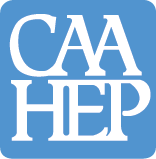Medical Assistant
Medical Assistants are multi-skilled health professionals specifically educated to work as a member of a health care team, performing a broad range of clinical and administrative tasks under the supervision of a physician, physician’s assistant or nurse practitioner.
| Degrees/Certificates | Credits | Estimated Program Length | Foundation Course Dates | Core Course Dates |
|---|---|---|---|---|
| Medical Assistant, AAS | 93 | 6 Quarters | Summer, Fall, Winter, and Spring Quarters | Winter Quarter |
| Medical Assistant Certificate | 88 | 6 Quarters | Summer, Fall, Winter, and Spring Quarters | Winter Quarter |
Program Accreditation
The Skagit Valley College Medical Assistant Certificate program is accredited by the Commission on Accreditation of Allied Health Education Programs upon the recommendation of Medical Assisting Education Review Board (MAERB). Skagit Valley College’s Medical Assistant program has a five-year average of 81.61% job placement rate for 2019-2023 graduates with a 5-year average of a 81.71% pass rate for the 2019-2023 graduates who took a national exam.
Commission on Accreditation of Allied Health Education Programs
25400 US Highway 19 North, Suite 158
Clearwater, FL 33763
www.caahep.org
Certification/Licensure Options
Upon successful completion of the Medical Assistant Certificate or AAS Degree program, graduates are eligible to take the national Certified Medical Assistant certification exam offered through the American Association of Medical Assistants (AAMA). Upon satisfactory completion of the exam, graduates will be qualified to use the credentials of Certified Medical Assistant (CMA, AAMA). The CMA credentials are recognized nationally; however, each state mandates the scope of practice for Medical Assistants. In the State of Washington, you will be qualified to apply for the Washington State MA-C certification. This certification is required to work as a medical assistant in Washington State (RCW 18.360; WAC 246-827). Employers prefer to hire certified workers who have passed the national exam.
American Association of Medical Assistants (AAMA)
20 N. Wacker Dr., Ste. 1575
Chicago, IL 60606
312.899.1500
www.aama-ntl.org
Program Entry
- Apply to the Admissions Office for an application to Skagit Valley College.
- Make an appointment to take your Accuplacer test. It is strongly recommended that candidates be a high school graduate or have passed the General Education Equivalency (GED) exam to enroll in the program.
- Students may enter this program during Summer, Fall, Winter, and Spring Quarters and attend classes on a part-time or full-time basis, however, some courses may only be offered once a year. Students may enter the program Core courses in Winter Quarter.
- To be eligible to take the National Medical Assistant Certification Examination upon graduation, candidates must have a high school diploma or a GED.
It is recommended that you have a good working knowledge of computers, are detail-oriented, analytical, have excellent organizational skills and a penchant for accuracy. You should also be able to work independently with little supervision.
Step 1: Apply to Skagit Valley College
- New Students
- Apply Online: Apply Here
- Take Placement Assessments: Placement Info
- Complete New Student Registration: New Student Registration
- Returning Students
- If you've been away for more than 2 years: Reapply Here
- If you've been away for less than 2 years: Reactivation Info
---
Step 2: Contact a Program Advisor to Create Your Education Plan
Choose the advisor based on your program of interest:
Medical Assistant AAS/Certificate
Medical Billing and Coding AAS/Certificate
Pharmacy Technician Certificate
---
Step 3: Complete the Allied Health Application
- Download the Application: Allied Health Application (DOCX)
- Email the Completed Application to: Samantha Sopher
Prerequisite courses in the structure and function of the human body, basic medical terminology, computers skills, and CPR for Healthcare Professionals may be required for admission to some programs. Please consult the individual program planning sheets or an adviser for more information.
Medical facilities require immunizations for all personnel who interface with patients. Students participating in practicum experiences require the same immunizations. The immunization cost is the responsibility of the student. Immunizations must be completed before registering for certain courses or applying for a practicum. The following are required for participation in most Health Care programs – students will be advised which immunizations (if any) are required for their particular program:
- Negative TB test or chest X-ray (1 every 12 months)
- Tetanus/diphtheria vaccination (within last 10 years)
- 2 MMR (measles/mumps/rubella) vaccination or positive titer
- Hepatitis B vaccination (series of 3 immunizations)
Additional immunizations may be required if recommended by instructor or required by practicum placement:
- Flu Vaccine
- Pertussis Vaccine (Tdap)
- Varicella Vaccine
- Rabies Vaccine (Veterinary Assistant program only)
The Medical Assistant program includes a required practicum experience. Practicum’s are at medical facilities which may involve travel to various regions of Skagit, Whatcom, Snohomish, and Island counties. All students accepted into the practicum experience must have reliable transportation. All experiences will be under the supervision of personnel at the medical facilities. Students will not be allowed to choose their practicum site. The department chair selects the facilities used for practicum sites and places qualified students. Each student is evaluated for Practicum readiness according to the Allied Health Student Handbook guidelines (Student Evaluation section).
Students planning to enter any of the healthcare professions are advised that as a health care provider they are at risk for exposure to bloodborne pathogens. Tasks and procedures performed by the healthcare professional involve risks classified by the Center for Disease Control in the following way:
- Category I – Direct contact with blood or other bodily fluids to which universal precautions apply.
- Category II – Activities performed without blood exposure but exposure may occur in emergencies.
- Category III – Task/activity does not entail predictable or unpredictable exposure to blood.
 Medical Assistant, AAS
Medical Assistant, AAS